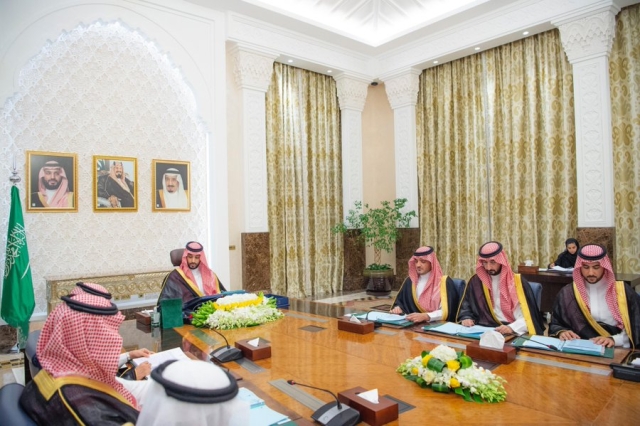As normalization agreements progress between Israel and the Kingdom of Saudi Arabia, and the promise of peace permeates both nations, certain details and agreements between the two countries remain unresolved. Chief among these is the question of what benefits the Palestinian Authority (PA) and its citizens can expect in light of what many perceive as Saudi Arabia distancing itself from the Palestinian cause. Although Bin Salman has made it clear, during his recent Fox News interview, that Palestinian statehood is not currently on the table, perhaps the Saudi Kingdom needs to convey a more assertive message, something along the lines of 'what have you done for us lately?'
The Palestinian Authority, Hamas, and other regional governments and groups that have held partial sovereignty over the Palestinian people have contributed little or nothing to Saudi Arabia, or to the broader Arab cause. In fact, the opposite is true. Their persistent focus on what they label as the 'Zionist occupation,' regardless of its justification, has prevented the global community from recognizing Arabhood for what it truly is: a dynamic and capable people rapidly advancing to become a dominant force in finance and culture in the 21st century.
Muhammad Saud offering warm hospitality to Israeli visitors in Saudi Arabia. Who could have ever imagined this could be possible one day. This is truly amazing. Mohammed Saud should be nominated for Nobel Peace Prize 2023. #Israel #SaudiArabia #peace 🇮🇱🕊️🇸🇦 https://t.co/d2X4xMD3WD
— Eli Dror (@edrormba) September 30, 2023
This Palestinian narrative has done harm regardless of how an average observer perceives regional geopolitics. Those who lean 'pro-Palestinian,' with an understanding that Palestinians are Arabs, may view them as an impoverished group desperately in need of rescue and global intervention. On the other hand, those who identify with Zionism may see Palestinians and the entire Arabian region as a hostile place plagued by extremism and terrorism. Neither perspective benefits Bin Salman's 2030 plan or the potential of neighboring allies.
To make matters worse, the Palestinian Authority, the Gaza-based Hamas government, and groups like the Palestinian Islamic Jihad have all received substantial support in recent years from Saudi Arabia's most significant adversary, Iran. The non-Arab Shiite regime, led by the Ayatollah, has provided over $100 million in aid solely to organizations based in Jenin, according to an FDD report from this year, following an Israeli operation in the city's refugee camp. Meanwhile, Hamas, under Ismail Haniyeh's leadership, openly boasts about receiving hundreds of millions from Iran to bolster its military capabilities. Although the PA is more discreet about its Iranian support, it is evident from other available evidence that they receive both direct and indirect assistance from Iran.
Saudi Public Survey: Muslim Prayer Rights in Al-Aqsa Mosque is Key Factor in Israel Peace Agreements 🇮🇱🇸🇦
— Adam Albilya - אדם אלביליה (@AdamAlbilya) September 30, 2023
A recent survey in Saudi Arabia shows that ensuring Muslim prayer rights in Al-Aqsa Mosque is Saudis' most important condition in ties with Israel.
This highlights why… https://t.co/oMSa0IcIHO pic.twitter.com/TooGo0cGtO
Furthermore, it is unjustifiable for the Palestinian Authority to claim that they haven't received substantial aid from their Arab peers to make educational, cultural, and financial progress in alignment with the goals of the Arab League's central players. Since 2018, the UAE has provided $541 million in assistance to the Palestinian Authority and its governing groups. Saudi Arabia, until 2019 when Bin Salman made the decision to cut funding, consistently sent annual financial support in the hundreds of millions.
In light of these challenges and the inconsistency in the Palestinian leadership's loyalty to Arabhood, they still believe they are owed something in return for Saudi Arabia, a sovereign nation, establishing relations with Israel, another sovereign nation. While the Palestinian narrative may convince some that they remain on the right side of history, Arab leaders are increasingly aware of the disruption posed by the Palestinian Authority and are adjusting their strategies accordingly.
Saudi Arabia's first-ever envoy to the Palestinian Authority, Nayef al-Sudairi, visited the occupied West Bank on Tuesday.
— Al Jazeera English (@AJEnglish) September 26, 2023
The move marks a “historic milestone” towards diplomatic ties between Saudi Arabia and Palestine ⤵️ pic.twitter.com/yCYSTbsPGt
The day will arrive when not only Arab leadership, but also the general Arab population, will recognize their significant underlying issues. When that day comes, the Palestinian cause will truly face a challenge. Saudi Arabia will normalize relations with Israel on its own terms and provide what it deems appropriate to the Palestinians. If the PA, Hamas, and the Jihad act wisely, they will respond with gratitude for this generous contribution.


